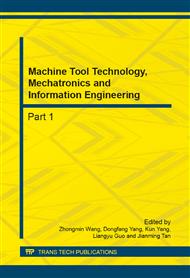p.5594
p.5598
p.5602
p.5606
p.5611
p.5615
p.5619
p.5623
p.5627
Research on Evaluation and Analysis Model of Business English Teaching Based on Fuzzy Comprehensive Judgment
Abstract:
Compared with the traditional teaching quality evaluation method, Fuzzy Comprehensive Judgment Model. Business English classroom teaching evaluation is an important part of English teaching quality management in institutions of higher learning, and it is of vital significance for us to improve the quality of foreign language teaching. Compared with the traditional teaching quality evaluation method, fuzzy comprehensive judgment Model, based on expert knowledge and subjective experience, can use mathematical methods with rigorous logic to remove subjective elements as much as possible, and to reasonably determine the evaluation index weight; it may take advantage of scientific quantitative methods to characterize the qualitative issues in classroom teaching qualitative evaluation, so that the qualitative and quantitative analysis can get a better integration, which helps to overcome the subjective arbitrariness in English teaching quality evaluation, thus improving the reliability, accuracy and impartiality of the fuzzy comprehensive evaluation.
Info:
Periodical:
Pages:
5611-5614
Citation:
Online since:
September 2014
Authors:
Price:
Сopyright:
© 2014 Trans Tech Publications Ltd. All Rights Reserved
Share:
Citation:


